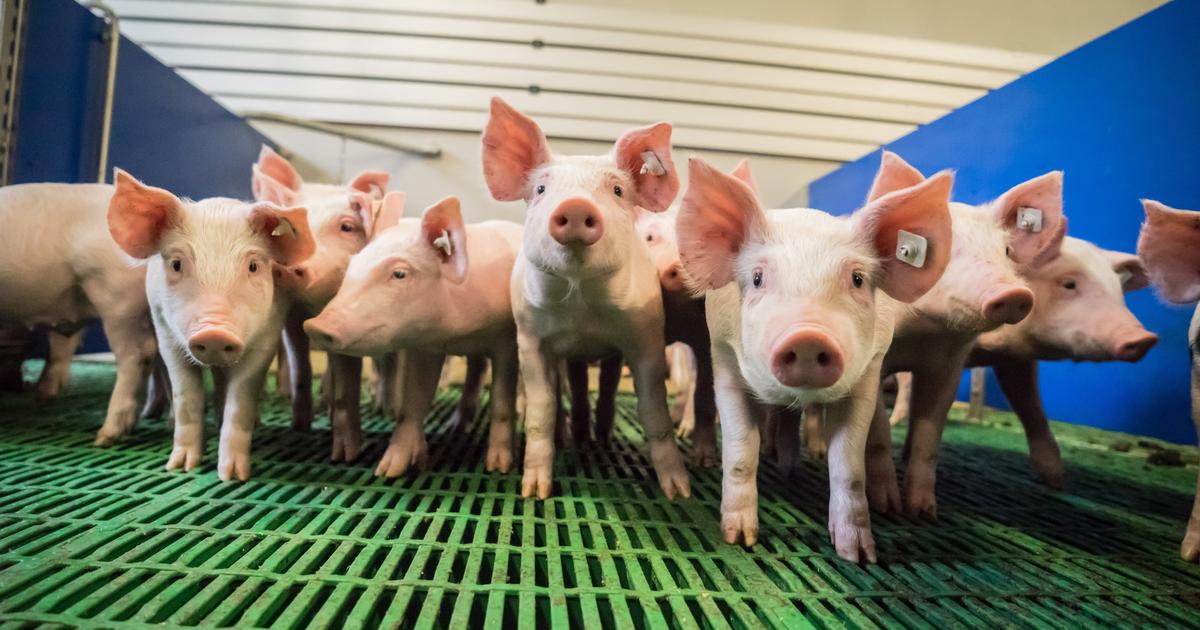The Miesbach breeding association is under pressure. Thirty young cattle landed in Libya via a detour - despite the export ban. The managing director says about the allegations.
Miesbach - sensational television pictures recently made the round - and caused great unrest among farmers in the district. ZDF reporters had revealed that 30 young cattle sold to Slovakia through the Miesbach breeding association were actually transported to Libya. In a target country that has been a risk state in Bavaria since March 2019 and is therefore subject to an export ban. On top of that, the animals were re-declared from breeding to slaughter cattle. Allegations that hit the Miesbach breeding association hard. Managing Director Christian Presslaber (43) explains why in an interview with our newspaper.
Mr. Presslaber, valuable calves from Upper Bavaria were brought to Libya on a ship with cattle. What exactly happened there?
Christian Presslaber, managing director of the Miesbach breeding association.
© Thomas Plettenberg
Christian Presslaber: The transport took place in mid-May 2019 and was reported by animal protection. After a factual review by the government in summer 2019, no violation of the law was found. This can be documented by images from the supply points and the logbook of the truck. Photos of the dairy farm where the animals are in Libya will provide further evidence. Unfortunately, the reporting was not honest. The specific case was mixed with other transports. You were just looking for a scandal. We are now feeling the effects. And that's pretty bitter.
In what way?
Christian Presslaber: Many buyers are now afraid of losing their good reputation due to false reports and are looking for other trading partners. For example, a dairy with its own dairy in Uzbekistan wanted to import 1,000 breeding cattle from Bavaria within the next three years. Now he's looking around Austria. He is afraid that animal rights activists will pillor him. He only wants to build a livelihood with our high-quality Fleckvieh.
Also read: Breeding association appeals: animal owners should vaccinate cattle
Then why didn't you prevent the controversial transport to Libya?
Christian Presslaber: We simply cannot control everything that the buyer does with the animals after processing. As with all other goods, the new owner has the right to resell them. To whom and, above all, where, unfortunately we cannot direct. And that is also the major weakness of the Bavarian export ban: there are enough back doors to get around it. As happened in this case via the detour to the EU country Slovakia.
That means you prefer to do business directly with buyers from such countries again?
Christian Presslaber: It would be better in any case. A direct sales transaction would have the advantage that we would have much more influence and control options. In general, you have to know that the exported animals are valuable breeding cattle in the high price segment. Thanks to the good cooperation with export companies and veterinary offices, markets have developed worldwide over time. It is in the buyer's and seller's own interests that the cattle arrive safely at their destination.
Read also: Breeding association boss stops: "There would be no better time"
Because both have an economic interest?
Christian Presslaber: Yes, and that is justified. It should not be forgotten that our farms also have to live on something. Especially in smallholder agriculture in grassland, cattle breeding is an important mainstay and contributes to the preservation of the local recreation area through the alpine pasture. In other countries, too, the cattle could create a livelihood for the farmers. I am thinking, for example, of a development aid project with 300 breeding calves for Eritrea, which is currently being managed by the German Agency for International Relief. All of this is hampered by recent reporting.
What do you intend to do about it?
Christian Presslaber: We want to ensure more transparency and clarification on our part. For example, the Federal Association is working together with breeding associations and veterinary offices on a label to document all animal transports from Germany to the recipient country. Pictures and videos could explain how this works. This is the only way we can regain the trust that has been lost and bring peace to the matter.
sg















